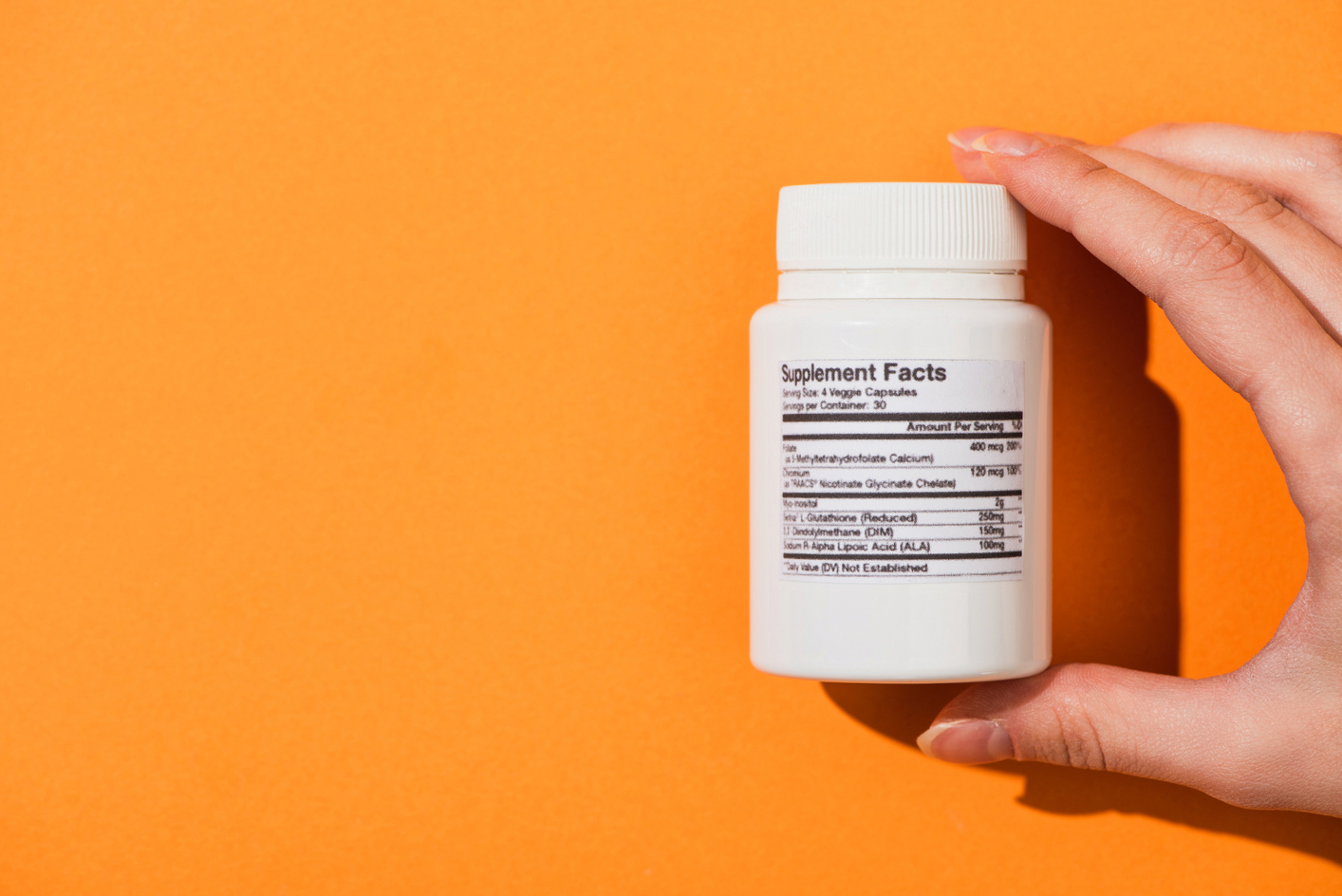Supplements
Mandatory Product Listing not included in omnibus spending bill
Published
1 year agoon
By
fitinstyle
[ad_1]

On December 7, Senator Dick Durbin, D-IL, called on his colleagues to support the inclusion of MPL language for dietary supplements in the Consolidated Appropriations Act of 2023 (H.R. 2617).
MPL would require dietary supplement manufacturers to notify the US Food and Drug Administration before bringing a product to market and to upload label information to a central database.
The measure has split the dietary supplements industry, with some trade associations supporting MPL, and other opposing it, notably the American Herbal Products Association (AHPA) and the Natural Products Association (NPA).
Just last month, AHPA sent a letter to Senate and House leadership requesting that no MPL language be added to any must-pass appropriations legislation to be considered during the lame duck session.
Daniel Fabricant, Ph.D. president and CEO of the Natural Products Association, called this week’s news, “a big win for consumers, for innovation, and for access to the healthy products that millions of Americans rely on and turned to during the height of the pandemic.
“We expected that industry critics would try to use the lame duck as another backdoor opportunity to jam this through and that’s exactly what happened,” said Dr Fabricant. “But thanks to NPA’s advocacy and the tens of thousands of individuals who took part in our grassroots campaign, that effort was rejected.”
Bipartisan support for an MPL?
On the other side, the Council for Responsible Nutrition has been a key champion for a mandatory listing, along with the Consumer Healthcare Products Association.
In response to a request for comment, a spokesperson for CRN told NutraIngredients-USA: “It is CRN’s understanding that the dietary supplement listing acct language will not be in the omnibus, however, there will be language in the report that accompanies the bill that reads, ‘The agreement supports FDA’s proposal to require that all products marketed as dietary supplements be listed with FDA. The agreement believes that FDA’s authorities over products marketed as dietary supplements should be clarified to facilitate enforcement against unlawfully marketed products.’
“While not establishing a product listing or even mandatory on Congress, it does express bi-partisan support for the concept of mandatory dietary supplement listing and sets up the proposal for consideration in the next Congress.”
Durbin: “How can the FDA really regulate this market … when it doesn’t know what’s on the market?”
This is not the first time this year that Sen Durbin had tried to get Congress to pass MPL provisions, having previously seen attempts stripped out of the funding bill in September.
“More than 75% of people living in America, myself included, my family too, use a dietary supplement, such as a vitamin or mineral. However, many assume when reaching for that supplement bottle in the medicine cabinet, that the Food and Drug Administration of the United States government knows what’s in that bottle and knows that it’s for sale,” Durbin said in his brief speech.
“How can the FDA really regulate this market for the safety of US consumers when it doesn’t know what’s on the market?” he added. Durbin said his and Braun’s proposed addition to the funding resolution “would require supplement companies to tell the FDA what products they put on the shelf and what’s in them. It’s just that basic.”
[ad_2]
Source link
You may like
Supplements
Review calls for more studies on cinnamon and cognitive function
Published
1 year agoon
February 14, 2023By
fitinstyle
[ad_1]

“This systematic review revealed that cinnamon and its components (eugenol, cinnamic acid, cinnamaldehyde, etc.) could affect memory and learning by decreasing amyloid plaque in the hippocampus and phosphorylation of tau-protein,” wrote researchers from Birjand University of Medical Sciences in Iran.
They attribute these brain-boosting benefits to cinnamon’s antioxidant, anti-inflammatory and anticholinesterase activity as well as neurotrophic effect, neural maintenance and insulin signaling improvement.
Cinnamon and its compounds
Cinnamon, from the inner bark of evergreen trees belonging to the genus Cinnamomum, has been used in herbal medicine for centuries from China to Egypt as remedy for respiratory, digestive and menstruation issues. Today, as supplement, it is also suggested as support for healthy glycemic response and blood pressure.
“Cinnamon is proven to have antioxidant properties and reduce inflammation through different pathways, such as the NF-kB pathway and reducing reactive oxygen species (ROS),” the researchers noted. They attribute the antiproliferative, anti-inflammatory and antioxidant effects to compounds including eugenol, cinnamic acid, cinnamaldehyde, syringic acid, tannins and catechins.
Cinnamon also contains a small amount of choline, an essential nutrient for the brain that produces the acetylcholine neurotransmitters, which in turn play a critical role in regulating memory, mood, muscle control and other functions.
Indications of potential brain benefits
The research team conducted a systematic review of 40 eligible studies selected from a total of 1,605 collected from the Web of Science, Google scholar, PubMed and Scopus databases between 2011 and 2021. They include five in vitro studies, 33 in vivo studies in rats, mice and the common fruit fly, and two clinical trials in adolescents and pre-diabetic older adults.
“One clinical study on adolescents showed a positive effect on memory using cinnamon chewing gum for 40 days, while the other reported no significant changes in memory using cinnamon administered orally (single dose/2 g),” the study reported.
Among the in vitro and in vivo studies, 16 used the cinnamon extract/cinnamon powder, while others administered a variety of cinnamon bioactives. The researchers concluded that the main outcome of most studies proved that cinnamon significantly improves cognitive function i.e. memory and learning.
“In vivo studies showed that using cinnamon or its components, such as eugenol, cinnamaldehyde and cinnamic acid, could positively alter cognitive function,” they wrote. “In vitro studies also showed that adding cinnamon or cinnamaldehyde to a cell medium can reduce tau aggregation, amyloid β and increase cell viability.”
Tangled tau proteins are associated with a range of neurodegenerative diseases, while the pathology of Alzheimer’s disease appears to be driven the production and extracellular plaque deposits of amyloid β peptide.
Call for further study
Acknowledging limitations across the collection of varied studies, the researchers call for larger studies and more clinical trials to evaluate the effects in humans.
“It is also beneficial that in vivo studies in this field propose the probable mechanism of cinnamon affecting the brain to specify the related pathways more precisely,” they added.
[ad_2]
Source link
Supplements
Omega-3 supplements may be ‘most efficient’ way to support neonatal development, researchers say
Published
1 year agoon
January 10, 2023By
fitinstyle
[ad_1]

It was also reported that after supplementing with DHA, levels of maternal DHA increased in erythrocyte phospholipids, serum, and breast milk.
“Our results confirmed usage of ‘omega’ dietary supplements as an efficient way of increasing the availability of EPA and DHA for infants,” stated Warsaw, Poland-based researchers in Nutrients.
Essential Fats
There are established recommendations for the intake of essential fatty acids (EFA) and long-chain polyunsaturated fatty acids (LC PUFAs) for pregnant women, due to the recognised importance to the mother and child’s health. It has been found that these types of fats can increase gestational period and birth weight, as well as support the development of the child, in terms of the central nervous system and cognitive function.
“LC PUFA, especially DHA, plays a pivotal role in the development of the central nervous system, visual acuity, and cognitive functions. It depends on the involvement in maintaining membrane fluidity, impulse propagation, synaptic transmission, and functioning as a cytosolic signal-transducing factors for various gene expression during the critical period of brain development, which seems to be last trimester and first few months after birth,” the researchers explain.
Due to the importance of these types of fatty acids, the present study sought to first analyse the frequency of consumption of fat sources as well as ‘omega’ supplements in pregnant patients. Secondly, the researchers measured the n-3 and n-6 serum FA contents at the time of labour of the pregnant women and their children using the GC-FID technique, to investigate subsequent nutritional status. The efficacy as well as the usefulness of the ‘omega’ supplements were then established.
Study details
Patients from the Anna Mazowiecka Clinical Hospital, consisting of 161 pregnant women, were administered dietary questionnaires to obtain data indicating dietary fat consumption as well as omega-3 supplement usage. The fatty acid profile was then assessed by obtaining maternal and umbilical cord blood samples at delivery.
The results found that 40% of the women were taking ‘omega’ dietary supplements. It was observed that taking such supplements was found to significantly increase serum levels of DHA in the pregnant women, compared to those who were not supplementing.
Additionally, it was observed that the LC-PUFA could penetrate the umbilical cord, with the blood containing significantly increased levels of EPA and DHA. As a result, the researchers concluded that utilising these supplements could be the most efficient route to achieving optical LC-PUFA status for the developing child.
The future for recommendations
The present study provides evidence that omega-3 supplements appear to boost both maternal and infant LC-PUFA levels at a time of critical need for normal development of the child.
With the researcher’s highlighting the low intake of fish observed among the studied population, Kaitlin Roke, director of scientific communication at the Global Organisation for EPA and DHA Omega-3, tells NutraIngredients “This is common across many populations.
“If this is the case, a supplement containing DHA and/or EPA would be necessary, particularly for pregnant or breastfeeding women. Some pre- and post-natal supplements may contain omega-3s in combination with other nutrients, but the levels are rarely adequate. Typically, getting a higher concentration means looking for a separate omega-3 supplement in addition to a prenatal vitamin “.
The findings provide interesting insight into shaping the future of recommendations for pregnant women, with Roke adding “Since DHA plays such a critical role in infant brain and eye development, most recommendations are ~200mg of DHA per day, but this is too low, particularly for the benefit of reducing the risk of preterm birth.
“Science is constantly evolving, and this recommendation could be modified as more research is conducted. The important message is that pregnant and breastfeeding women need to get adequate amounts of DHA through food and/or supplements.”, she concludes, highlighting the relevance of such research.
Source: Nutrients
https://doi.org/10.3390/nu15010231
“Increased LC PUFA Levels in the Serum of Pregnant Women and Their Children as a Result of Dietary Supplementation with ‘Omega’ Fatty Acids”
Authors: M. Broś-Konopielko, et al.
[ad_2]
Source link
Supplements
France to allow ‘probiotic’ on food supplements labels
Published
1 year agoon
January 10, 2023By
fitinstyle
[ad_1]

The use of the term across Europe has been contentious since European authorities view it is an implied healthy claim since the official FAO/WHO definition denotes a health claim: “Live microorganisms which when administered in adequate amounts confer a health benefit on the host”.
Despite such a stance, more European countries are moving to allow the use of the term, notably Spain, Denmark, Italy, Greece, Poland, the Czech Republic, the Netherlands, and Bulgaria.
In France, the term “probiotic” may be used on food supplement labels together with the wording “contributes to the balance of the intestinal flora” so long as products meet certain conditions, such as a minimum number of living cells per daily dose, a position that is similar to the situation in Italy.
The announcement was welcomed by a number of stakeholders in the probiotics space, with Rosanna Pecere, executive director of IPA Europe, stating: “IPA together with IPA Europe working diligently in the European environment for probiotics, are happy to see the softening position for the use of the term, and also happy with the added use of the claim.”
George Paraskevakos, IPA Global’s executive director, added: “This initiative links to all the probiotic on-going work globally and segues nicely into the continuation of the harmonization proposal of probiotic regulations at Codex Alimentarius which is set to resume later this year.
“The European market has shown the biggest jump in growth from an online sales perspective in 2022, outstripping other region growth rates by close to 5% as reported by Ewa Hudson’s Lumina Intelligence. This further emphasises the thirst for probiotic products from consumers in Europe, and further underscores the importance of the work which IPA EU and IPA are conducting not only in Europe but also globally to promote quality, safety, and probiotics that provide benefits.
“We are hoping to see more countries in Europe to follow suit in the coming year,” said Paraskevakos.
Calls for harmonization
Adding his voice to the news, Dr Luis Gosálbez, Managing Director, Sandwalk Bioventures, said: “This is yet another important regulatory event for probiotics in Europe, which undoubtedly calls for an EU-wide regulation regarding the type of products in which the term may be used (ie. foods vs. food supplements vs. both), minimum CFUs per day and claims associated, as decisions made by individual Member States are not harmonized in these regards.”
Speaking at the 2022 Probiota conference in Copenhagen, Tanne Severin Holm of the Danish Veterinary and Food Administration, also called for more harmonization across the European bloc on the use of the term: “We still do not allow use for food, but we do allow it for food supplements,” she told attendees. “We are working to try and find a harmonised approach. Member states have different approaches, and the playing field has become disharmonised, but we feel an urgent need to find a unified approach.”
[ad_2]
Source link
Recent Posts
- The Ultimate Guide to Berberine: Unleashing its Health Benefits for Blood Sugar Control, Weight Management, and More
- The Ultimate Guide to Berberine: How This Natural Compound Can Revolutionize Your Health
- The Ultimate Guide to Berberine: Unlocking Its Powerful Health Benefits for a Healthier You
- Exploring the Health Benefits of Berberine: A Natural Remedy for Diabetes, Cholesterol, and More
- Unveiling the Health Benefits of Berberine: How This Natural Compound Can Transform Your Wellbeing
Advertisement
Sponsored Ads
TRENDING
-

 HEALTH & WELLNESS5 years ago
HEALTH & WELLNESS5 years agoAcidophilus: A Probiotic Bacterium
-

 herbs3 months ago
herbs3 months agoThe Ultimate Guide to Ashwagandha Extract: Stress Relief and Optimal Health Unveiled
-

 HEALTH & WELLNESS4 years ago
HEALTH & WELLNESS4 years agoHerbs and Essential Oils to Fight Coronavirus
-

 TRAINING & FITNESS5 years ago
TRAINING & FITNESS5 years ago6 Ways to Decrease your Shoulder Pain!
-

 HEALTH & WELLNESS5 years ago
HEALTH & WELLNESS5 years agoWhy Muscles Get Sore
-

 DIET & NUTRITION5 years ago
DIET & NUTRITION5 years agoLow Carb Diet: Carbohydrates Influence on Testosterone
-

 Fitness5 years ago
Fitness5 years ago“No Pain, No Gain” True or Just a Fitness Myth
-

 HEALTH & WELLNESS5 years ago
HEALTH & WELLNESS5 years agoThe Best Shoulder Workout in Only Six Moves

